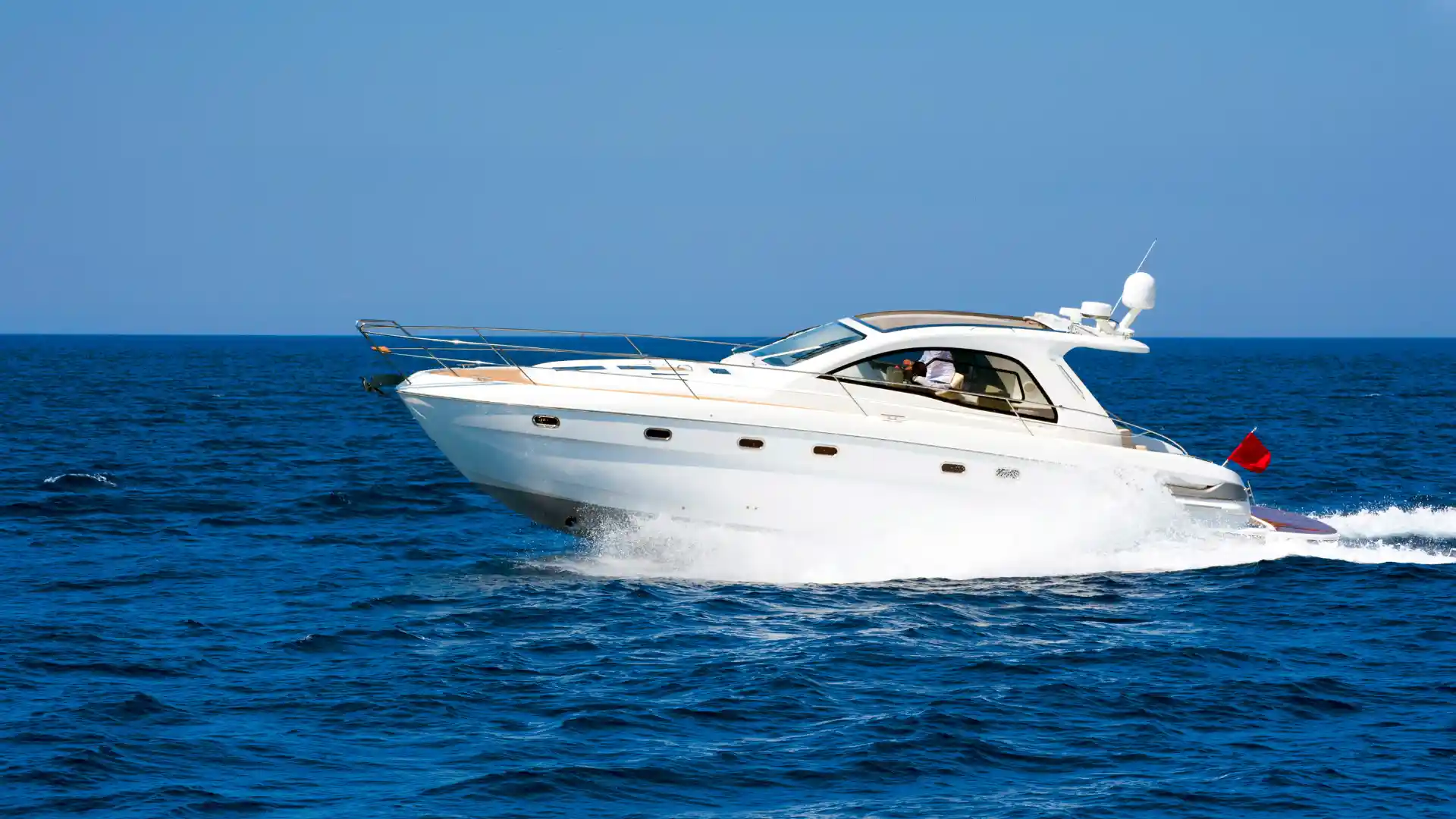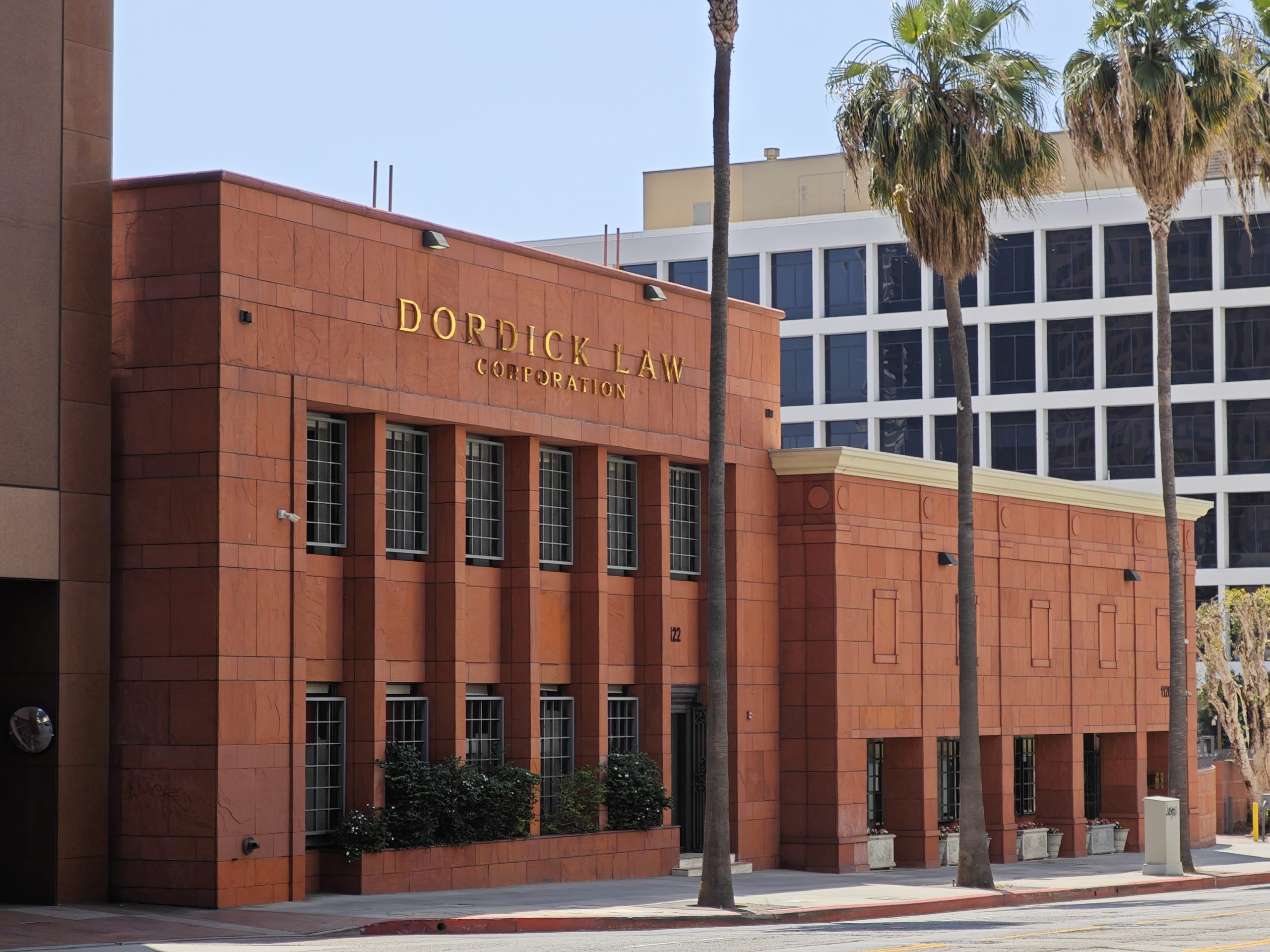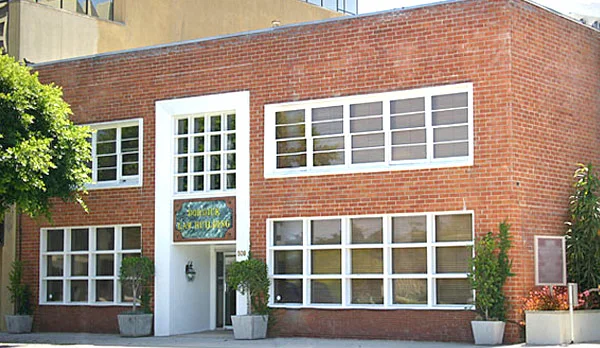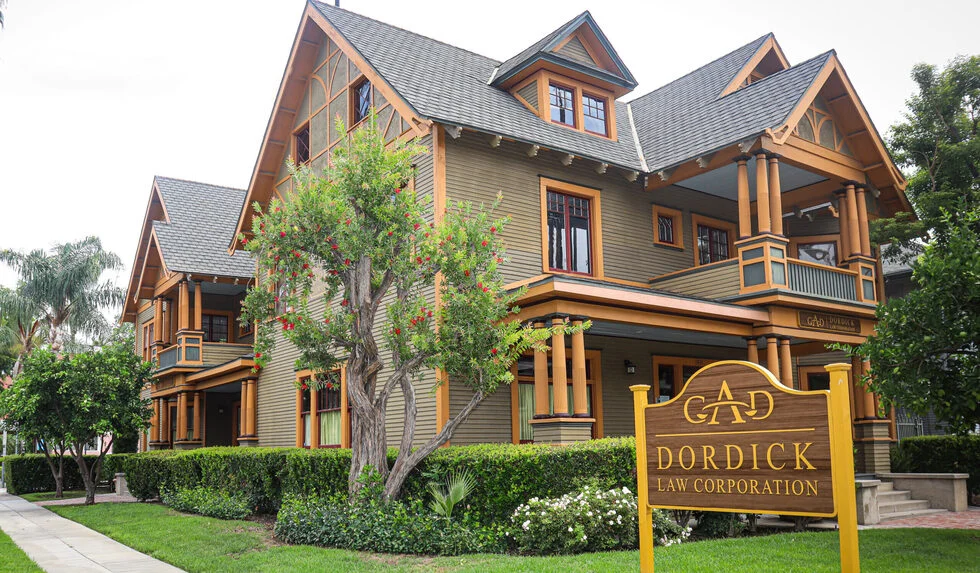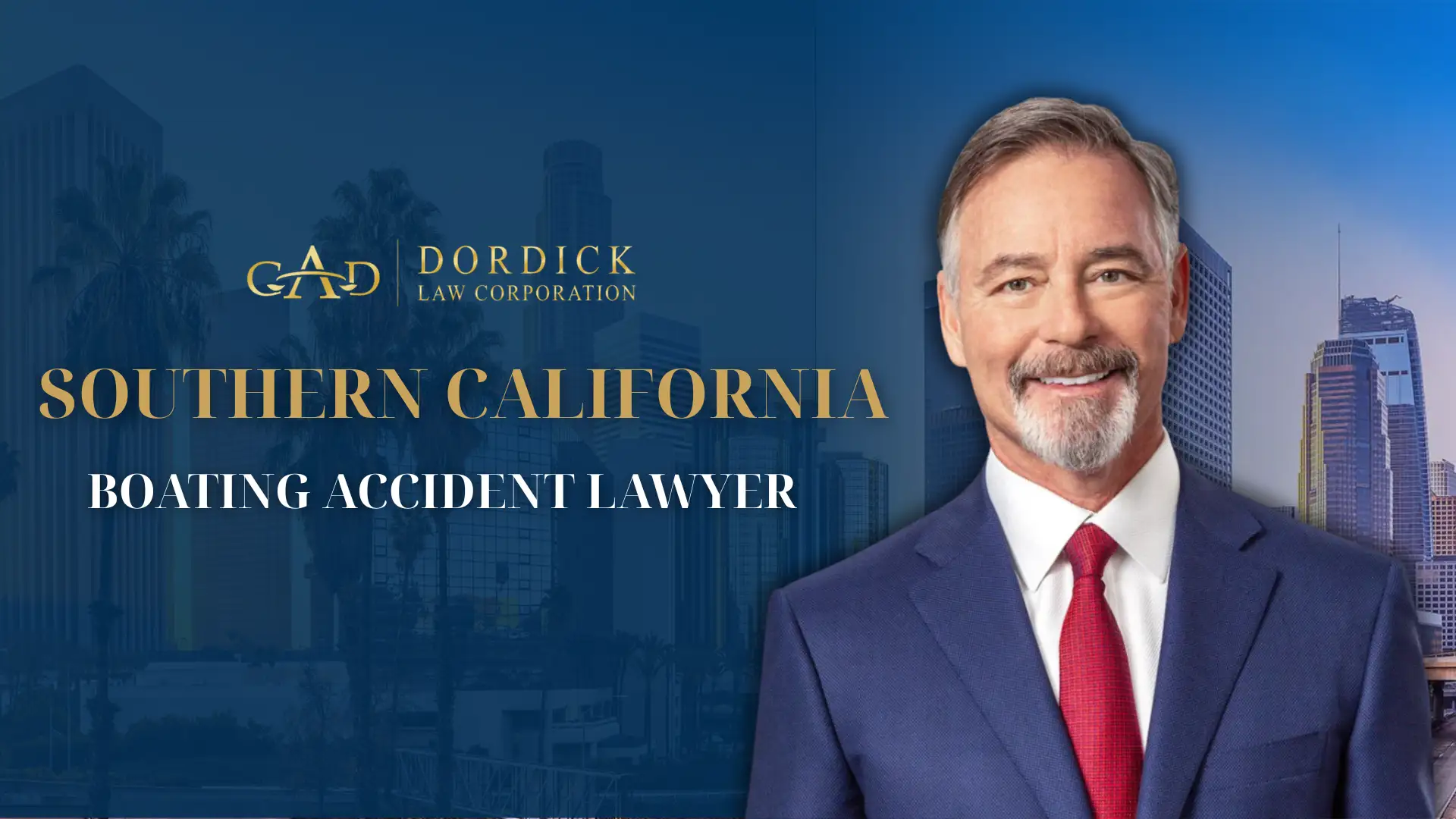
California’s long coastline makes it a hotspot for boating accidents. Research shows the state ranks second nationwide for the number of overall accidents, injuries, and deaths in 2023. According to United States Coast Guard statistics, boating accidents remain a significant concern for recreational watercraft users in California. Furthermore, many victims struggle to get the help they need after a collision if they don’t hire a Southern California boating accident lawyer. The legal complexities involved in boating accident cases make it essential to seek expert legal assistance to navigate issues of liability and compensation.
As an experienced personal injury attorney in Southern California, Dordick Law Corporation can fight on your behalf for fair compensation, especially in devastating boating accident cases. Our firm has extensive experience handling Los Angeles boat accident claims and representing clients throughout Los Angeles and the surrounding areas. We’ve recovered billions for our clients during more than 30 years representing residents of the Golden State. Let our award-winning team defend your rights and simplify the legal process so you can focus on healing. We offer a free consultation to discuss your case and help you understand your options. You don’t owe any fees unless you win, so call now or complete our contact form for a free evaluation.
What to Do After a California Boat Accident
Make sure you report the accident to the authorities and seek medical attention if you haven’t already done so. Here’s what to do after completing those steps:
- Write Down Everything You Remember – Record the details of the accident as soon as possible, including what happened, where it happened, and who was involved. Be sure to collect relevant evidence such as photos of the scene, contact information for witnesses, and any damaged items.
- Organize Your Medical Records – Keep copies of your hospital bills, doctor’s notes, test results, prescriptions, and discharge instructions. Document all injuries sustained, as this information supports your injury claim by detailing your injuries, linking them to the accident, and showing their effects.
- Track Your Recovery Process – Note how the injuries affect your daily life, work, sleep, and mental health. Include dates, symptoms, and missed activities whenever possible.
- Save Damaged Personal Items – Don’t repair or discard damaged clothing, equipment, or gear. They may be valuable evidence later.
- Avoid Speaking with Insurance Adjusters on Your Own – Let a lawyer handle those conversations, as insurers may pressure you to settle for less than your claim’s worth. It is important to understand your insurance coverage, as the type and extent of coverage can impact your ability to seek compensation for your losses.
- Don’t Post About the Accident Online – Insurance companies may use your words, photos, or check-ins to challenge your claim. Don’t give them anything to work with.
- Contact a Boat Crash Lawyer in Southern California – An experienced boating accident attorney in Southern California can guide you, protect your rights, and help you build a strong case for compensation. Legal counsel can assist the injured party in handling the process, pursuing an injury claim, and maximizing their recovery to seek compensation for all damages.
Why You Need a Southern California Boating Accident Attorney
Recovering fair compensation after a boating accident is often challenging. You may face uncooperative boat owners, questions about liability, or trouble proving your injuries. Similarly, boat accidents don’t always have police reports or witnesses (unlike car accidents), making the facts harder to prove. State and federal maritime laws can also complicate things, especially if the accident happened outside California waters. These situations often involve complex legal issues, including the interplay between maritime law and state law, which require specialized legal expertise to resolve. Finally, insurance companies often argue that your injuries aren’t severe or that you caused the accident.
At Dordick Law Corporation, our experienced and dedicated Southern California boating accident attorneys know how to cut through those tactics and defend your rights. We have extensive experience handling boat accident cases and our boat accident attorneys can guide you through every step of the process. We can gather medical records, expert opinions, and accident reports to build a solid case. If needed, we bring in marine safety experts to analyze what went wrong and prove who caused the incident.
We are committed to securing maximum compensation for our clients, using our knowledge of maritime law and state law to your advantage. We’ll also handle all communication with the insurers so you can focus on healing. If the other side won’t settle, we’ll be ready to take your case to trial. You only pay legal fees if we win your case, and our firm will handle negotiations with the insurance company to fight for the compensation you deserve.
Key California Boating Laws to Know
The boat operator or other party who broke the law is often liable for a boating accident. Liability and compensation in these cases are determined according to California law. With that in mind, here are some critical California boating laws to know:
- Boater Card Requirement – As of 2025, all boat operators must have a valid California Boater Card.
- Minimum Age to Operate – Children under 12 may not operate a boat with more than 15 horsepower without adult supervision. Operators 16 and older may operate vessels alone if they have a valid Boater Card.
- Required Safety Equipment – Boats must carry U.S. Coast Guard–approved life jackets for each person onboard. Most vessels also need fire extinguishers, sound-producing devices (like whistles), navigation lights, and visual distress signals. Boat owners have a duty to exercise reasonable care to prevent accidents and ensure all safety equipment is in working order.
- Speed Limits and Wake Rules – Operators must maintain safe speeds at all times. In no-wake zones, a boat’s speed must be slow enough to avoid creating a wake. High speeds near docks, swimmers, or anchored boats are illegal.
- Right-of-Way on the Water – Powerboats must yield to sailboats under sail. When two powerboats meet head-on, both should turn right (starboard). Overtaking vessels must keep clear of the boat being passed. These right-of-way rules apply to all vessels, including other watercraft and other boats, to help prevent collisions and accidents.
- BUI Laws (Boating Under the Influence) – It’s illegal to operate any vessel while impaired by alcohol or drugs. A blood alcohol content (BAC) of 0.08 percent or higher is the legal limit for adults.
- Accident Reporting Requirements – Operators must report boating accidents to the California State Parks Division of Boating and Waterways under specific conditions. For example, they must report incidents involving injuries, deaths, or over $500 in property damage. These reporting requirements are part of California law and can significantly impact personal injury cases.
Premises liability may also apply if a boating accident occurs on someone else’s property or dock, and such incidents can lead to personal injury cases under state law.
Common Causes of Boating Accidents
Most Southern California boating accidents happen due to negligence by operators, maintenance workers, or vessel manufacturers. Numerous factors can contribute to these incidents, making each case unique and complex. Some common causes of these incidents include:
- Operator Inattention – Many accidents happen because the boat operator is distracted or not keeping a proper lookout, often as a result of someone’s negligence or operating in a reckless manner.
- Operator Inexperience – Poor decisions often lead to collisions or capsizing, as boaters who lack training or experience may struggle with navigation, docking, or emergencies. Boat operators have a responsibility similar to drivers of motor vehicles and must exercise proper caution and judgment.
- Speeding – Operating vessels at excessive speeds—particularly in crowded or unfamiliar waters—increases the risk of striking another boat or object.
- Alcohol or Drug Use – Impaired judgment, slowed reflexes, and poor coordination make boating under the influence a leading cause of accidents and fatalities.
- Equipment Failure – Mechanical problems, such as engine failure or steering issues, can lead to dangerous situations if a boat loses power or maneuverability. These equipment failures can result from failing to properly maintain the vessel or from inherent defects in boat design or safety gear.
- Violating Navigation Rules – Ignoring right-of-way laws, buoys, or no-wake zones puts everyone on the water at risk.
- Weather and Water Conditions – Sudden storms, high winds, or rough water can quickly create unsafe conditions. Poor visibility or strong currents can also cause accidents.
- Overloading the Vessel – Carrying too many passengers or too much gear can affect a boat’s stability and make it more likely to capsize or sink.
- Lack of Safety Equipment – Missing life jackets, fire extinguishers, or signaling devices may not cause an accident, but they make an emergency far more dangerous.
Common examples of boat accident injuries include broken bones, spinal cord injuries, concussions, lacerations, burns, hypothermia, and drowning. These serious injuries can result from the causes listed above and may have life-changing consequences. Boat accident injuries often require immediate medical attention and can lead to significant medical costs and long-term effects, especially when a serious injury is caused by someone’s negligence.
Who’s Liable for a Boating Accident?
Determining who’s liable for a boating accident is the first step to recovering compensation for your injuries. It is important to identify the liable party and determine who may bear liability for the accident, as this will affect your ability to pursue damages and legal recourse. The potentially liable parties in your boat accident claim could include:
- Boat Operators – Operator negligence is one of the most common causes of accidents. The person driving the boat may be held liable if they were speeding, distracted, intoxicated, or ignored boating laws.
- Boat Owners – Even if the owner wasn’t operating the vessel, they may be held liable for loaning it to an unqualified or reckless driver or failing to maintain it properly.
- Rental Companies – A rental company can be held liable for providing faulty equipment or failing to inspect the boat. They might also be liable if they allowed untrained individuals to operate a vessel without proper safety instructions, and may have financial responsibility for damages resulting from their negligence.
- Boat Manufacturers – If the accident resulted from a design flaw, manufacturing defect, or malfunctioning part, the company that made the boat may be held liable under product liability laws. Any party involved in the design, manufacture, or sale of the boat or its parts could be considered a liable party.
- Event Organizers or Tour Companies – Event organizers and tour companies may be held liable for accidents during guided trips or recreational excursions. These cases often involve unsafe practices, overcrowded vessels, or hiring unqualified staff.
- Maintenance Providers – A mechanic or service company may be responsible if poor maintenance or improper repairs caused a mechanical failure or equipment malfunction.
- Other Boaters – In multi-vessel accidents, liability may fall on another boat’s operator or other watercraft due to their reckless behavior, wake violations, or ignoring right-of-way rules.
- Government Entities – Under certain conditions, a government agency may bear liability for accidents. For instance, they may be held liable if poorly marked hazards, missing buoys, or inadequate patrols contributed to the incident.
Potential Compensation for Boating Accidents
There are two main categories of compensation in boating accident claims. The first is your economic damages, which cover the incident’s direct financial costs. For example, you can demand economic damages for your lost income, lost wages, medical expenses, reduced future earnings, and damaged property. Save your receipts, medical bills, and other financial records for proof of these losses. Accident victims, including boating accident victims, have the right to recover damages and seek just compensation for their injuries and losses.
The second main category of compensation in a boat accident claim is your non-economic damages. Non-economic damages compensate you for a boat accident’s indirect or intangible costs. For instance, you can seek non-economic damages for your pain and suffering or emotional distress. Pursuing financial compensation for both economic and non-economic losses is important to ensure you are fully compensated for the impact of the accident. These losses are harder to prove, but notes from your doctor or mental health counselor can help you make a strong case. You can also ask your friends and family to testify about how the accident has affected your life.
Deadline for a California Boating Accident Lawsuit
In California, you usually have two years after a boat accident to file a personal injury lawsuit, but wrongful death claims may have specific statutes of limitations that apply in fatal boating accidents.
However, it’s vital to speak to a boating accident attorney immediately so they can gather evidence before it fades and start building your case. If a family member has died in a boating accident, you may have the right to file a wrongful death claim to seek compensation and hold the responsible party accountable.
Contact Our Southern California Boating Accident Lawyers
Trust Dordick Law Corporation, a leading law firm in Southern California, to defend your rights and simplify the legal process after a boat accident in California.
Contact our team of experienced boating accident attorney today for a free evaluation. Call (310) 551-0949 now or complete our contact form. You pay nothing unless our attorney wins your case with the compensation you deserve.
